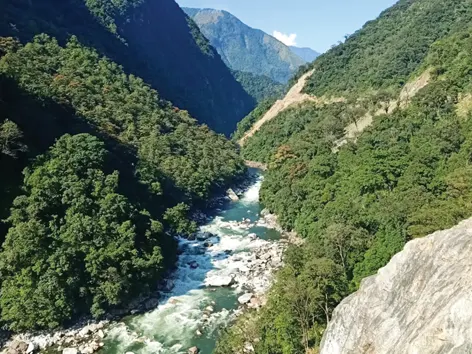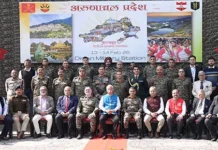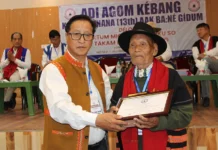[ Bengia Ajum ]
ITANAGAR, 25 Nov: Independent researcher Bhanu Tatak and human rights lawyer Ebo Mili recently visited Etalin in Dibang Valley district to assess the ground situation of the proposed 3,097 mw run-of-the-river Etalin hydroelectric project (HEP) on the Dri and the Taloh rivers.
They reviewed the NGT and the FAC notification of the national park (now conservation reserve/community reserve) and the reactions on the ground. Further, they tried to understand “the ground sentiments” over the HEP’s clearance conditions, land acquisition, compensation, and present and future prospects of the project.
They interacted with youths, elders, local elected representatives, and members of the local dam committee of Etalin.
Sharing their experience of the visit with this daily, the duo said that “the majority of the public remain unaware of the notifications by the central government on the reservation of indigenous local forests to national parks or conservation/community reserves.
“The locals are also unhappy with the compromised compensation rate,” they said.
Further, it is believed that the construction of mega dams will threaten food security in the region. “Dri and Taloh river basin is very fertile and has bountiful produce of local/native vegetables and forest products. Mega dams threaten the food security of the area/inhabitants in the area of Etalin circle as a whole (possibly even downstream, as ecosystems are balanced and intertwined),” they noted during their visit.
“Also, the local people are unwilling to part away with their ancestral land, even after the acquisition, on witnessing the case of the 2,880 mw DMPP compensation discrepancies,” the duo said.
Based on their research, the duo suggested that “timely intervention via proper public awareness can help the local inhabitants of Etalin circle build free, prior, and informed consent for decision-making that is justifiable to both the present and future of the people and place.”





